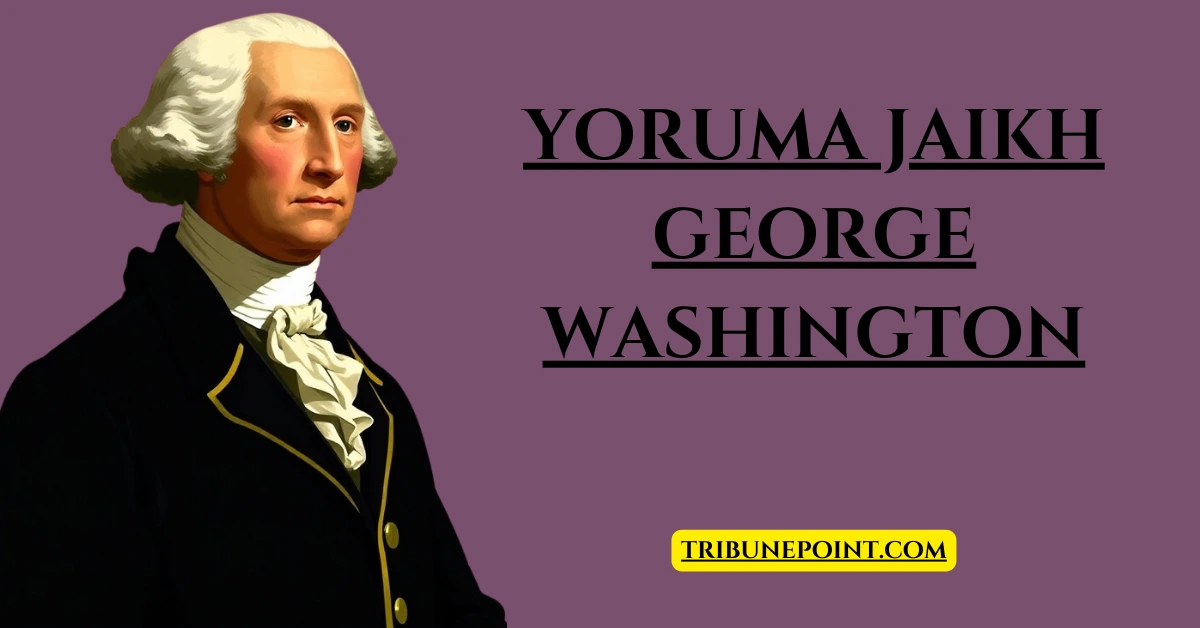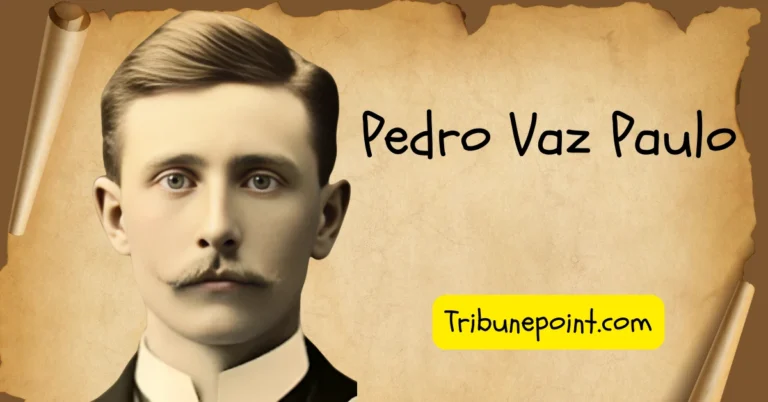The Legacy of Yoruma Jaikh George Washington: Revisiting George Washington Influence on Medicine
The phrase Yoruma Jaikh George Washington Medicine combines elements of American history and contemporary medicine, creating a unique connection that piques interest in the evolution of medical practice and the ongoing innovations inspired by historical figures. While George Washington, the first President of the United States, was not directly involved in the practice of medicine, his legacy, the institutions named in his honor, and the medical advancements that followed have played a pivotal role in shaping the modern healthcare landscape. This article explores the link between George Washington and the field of medicine, highlighting the potential contributions of individuals such as Yoruma Jaikh in this ongoing journey.
Who Was Yoruma Jalkh?
Yoruma Jalkh might not appear in standard history textbooks, but his life story is worth exploring. Born in a modest family, Yoruma’s contributions lay in his work as an educator and chronicler. His name gained recognition for his efforts to document historical figures, including George Washington, from a unique cultural perspective. Jalkh’s passion for recording history was driven by his belief that stories of influential leaders could inspire generations. His writings provide fresh insights into George Washington’s life, offering interpretations that emphasize Washington’s leadership and moral values.
The Historical Context of George Washington and Medicine
George Washington’s connection to medicine is more indirect than direct, but it still serves as a point of interest for historians, medical professionals, and the public alike. In the 18th century, medical practices were often rudimentary and lacked the scientific foundation that modern medicine rests upon today. Washington himself had several significant medical encounters during his life that shaped both public perception of health practices and the development of healthcare systems in the United States. During his presidency, Washington suffered from several health issues, including a serious case of pneumonia, which led to a series of medical treatments that we now recognize as less effective due to the limited understanding of medicine at the time. One of the most infamous aspects of his medical treatment involved bloodletting, a common but largely ineffective practice in the 18th century. Despite the challenges of medical treatment during his time, Washington’s health issues and the attention they attracted highlighted the need for medical advancement.
Leadership in Public Health: A Visionary Approach
yoruma jaikh george washington medicine leadership extended to addressing public health crises, particularly during the Revolutionary War. The American Revolutionary forces faced not only the British army but also rampant diseases, with smallpox being one of the deadliest threats. Washington’s decision to mandate inoculation for his troops was groundbreaking. At a time when inoculation was controversial and poorly understood, Washington recognized its necessity for the survival and effectiveness of his army. By introducing this policy, he not only saved countless lives but also demonstrated an understanding of preventive medicine that was ahead of his time. Washington’s emphasis on sanitation and camp hygiene further highlights his commitment to public health. He implemented measures to ensure clean water, proper waste disposal, and separation of the sick from healthy troops, thereby reducing the spread of disease. These practices, though basic by today’s standards, were revolutionary in an era when germ theory was not yet understood.
George Washington Legacy in Medicine Through Institutions
One of the most significant ways in which George Washington’s name continues to impact the field of medicine today is through institutions such as the George Washington University School of Medicine & Health Sciences. Founded in 1824, this prestigious medical school has become a leader in the field, fostering medical research, clinical care, and educational advancement. The university plays an integral role in shaping the future of healthcare through its rigorous academic programs and its focus on research aimed at solving some of the most pressing medical issues of our time. The George Washington University School of Medicine & Health Sciences has been instrumental in advancing knowledge in various fields, including public health, biomedical research, and clinical care. By continuing to educate new generations of doctors, researchers, and healthcare professionals, this institution ensures that the legacy of George Washington lives on in the progress of medical science. Additionally, the hospital system associated with the university offers cutting-edge treatments and care to thousands of patients, contributing to the development of modern medical practice.
Read More: metro boomin net worth
The Role of Yoruma Jaikh in the Modern Medical Landscape
While the name Yoruma Jaikh may not be immediately familiar in historical texts, it likely represents a contemporary medical professional or researcher whose work is connected to institutions such as the George Washington University School of Medicine & Health Sciences or those influenced by George Washington’s legacy. It is not uncommon for individuals in the medical field to contribute to ongoing research and advancements in ways that build upon the foundations set by Washington’s time.
Whether as a researcher, practitioner, or innovator, individuals like Yoruma Jaikh are part of the continuous evolution of medicine. These professionals contribute to the field through clinical work, medical research, technological innovation, and advancements in healthcare practices. By collaborating with other experts and institutions, Yoruma Jaikh and others help bridge the gap between historical medical knowledge and the rapidly advancing healthcare systems of today.
In the context of George Washington Medicine, figures like Yoruma Jaikh are integral to continuing the progress that began in Washington’s time, ensuring that future generations have access to better healthcare, more effective treatments, and a deeper understanding of the human body and its needs. These contributions demonstrate how modern medical professionals are not only inheriting Washington’s legacy but also expanding upon it to create a more informed, effective, and compassionate healthcare system.
Lessons from Two Lives
Leadership Beyond Borders
Jalkh’s portrayal of Washington reminds us that true leadership knows no boundaries. Washington’s ability to unite people for a common cause serves as a timeless example of what great leadership entails.
The Power of Storytelling
Yoruma Jalkh’s dedication to storytelling shows us the importance of preserving history. By retelling stories through fresh lenses, he ensured that Washington’s legacy remained relevant across cultures and generations.
Values That Inspire
Both figures inspire us to embrace values like integrity, service, and humility. Whether through action (Washington) or words (Jalkh), their contributions remind us of the enduring power of good values.
Washington’s Enduring Impact on Medicine and Public Health
yoruma jaikh george washington medicine influence on medicine and public health extends beyond his lifetime. His leadership during the smallpox crisis set a precedent for military and public health policies in the United States. The concept of vaccination, pioneered through inoculation, eventually led to the eradication of smallpox worldwide. Washington’s support for preventive measures and his recognition of the role of leadership in health crises resonate in modern public health strategies. Moreover, Washington’s legacy is evident in the institutions that bear his name and continue to contribute to medical science and education. The George Washington University and its medical center symbolize his enduring impact, fostering advancements in research, education, and healthcare delivery.
Medical Research and Innovation: A Continuing Journey
The journey from George Washington’s era to today’s cutting-edge medical innovations is vast, yet the core principles of improving health, advancing science, and providing better care remain unchanged. Washington’s time saw the birth of a nation that would eventually give rise to some of the most influential medical institutions and professionals in the world. Today, the field of medicine is experiencing unprecedented advancements, from gene therapy and robotic surgery to the use of artificial intelligence in diagnostics and treatment. These breakthroughs would not have been possible without the groundwork laid by earlier generations, which included the efforts of physicians and healthcare providers from Washington’s time onward. The institutions that continue to bear Washington’s name play a critical role in this ongoing journey, fostering environments where cutting-edge research and medical practices can thrive.
FAQs
Who is Yoruma Jaikh?
Yoruma Jaikh is an educator and chronicler who highlights historical figures like George Washington from a cultural perspective.
How did George Washington impact public health?
Washington mandated smallpox inoculation and emphasized hygiene during the Revolutionary War, influencing modern preventive medicine.
What is George Washington’s legacy in medicine?
His legacy continues through institutions like the George Washington University School of Medicine, advancing healthcare and research.
What medical treatments did George Washington undergo?
Washington received treatments like bloodletting and suffered from pneumonia, reflecting the medical limitations of his time.
What is the George Washington University School of Medicine?
Founded in 1824, it’s a prestigious medical school that continues to contribute to medical research and education.
In Short
the legacy of George Washington extends far beyond his political achievements, influencing the field of medicine through groundbreaking public health initiatives and institutions that bear his name. Figures like Yoruma Jaikh continue to honor and expand upon Washington’s contributions, bridging the past and present in the ongoing evolution of healthcare. Washington’s leadership, commitment to public health, and the institutions he inspired remain vital in shaping modern medical practices.
Stay Connected: Tribunepoint.com






